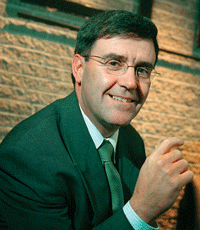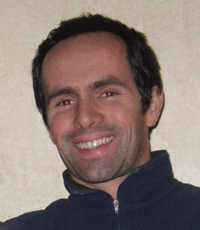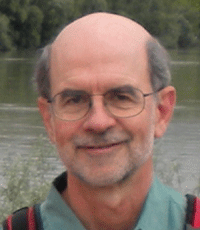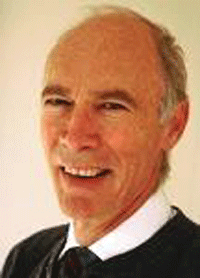Plenary Speakers
The aim of the plenary session is to present major issues related to energy management in our society. The plenary speakers have been invited to address the challenges and opportunities that we all encounter on a daily basis, and their presentations will explore the role or potential role of remote sensing in energy management, now and in the future.

Dr. Gaétan Lantagne
Scientific Director, Hydro-Québec Research Institute (IREQ)
Varennes, Quebec, Canada
Remote Sensing in Support of Electric System Management at Hyrdo-Québec
As Scientific Director of the Hydro-Québec Research Institute (IREQ), Gaétan Lantagne is responsible for the scientific direction of 300 researchers and plays key roles in Hydro-Québec’s energy efficiency and renewable energy research activities. Additionally, he is chair of Hydro-Québec’s steering committee on wind power, vice president of the board of directors of C3E (the Centre of Excellence in Energy Efficiency), vice president of the board of the Natural Sciences and Engineering Research Council (NSERC)’s Centres of Excellence for Commercialization and Research (CECR), and a member of NSERC’s Focus Group on Energy Technology.
Gaétan holds a PhD in chemical engineering from the University of Sherbrooke. His awards and distinctions include the 2004 Fernand-Séguin award for best paper (Réseau Environnement) and the 2009 Jacques-Bazinet prize for teaching excellence (Faculty of Engineering, University of Sherbrooke).

Dr. Matthieu Le Lay
Hydrometeorologist, Électricité de France – Direction technique générale (EDF DTG)
Département Surveillance
Service Développement Mesures Méthodes
Grenoble, France
Use of satellite products for hydrological application at EDF (Électricité de France)
Matthieu Le Lay obtained his doctorate in 2006 from the National Polytechnic Institute of Grenoble, France, with a thesis on hydrological modeling in the context of hydro-climatic variability in Benin (African Monsoon Multidisciplinary Analyses [AMMA] research program). After working briefly at Météo-France’s National Meteorological Research Centre on the modeling of surface atmosphere coupling, in 2008 he joined the General Technical Division (DTG) of Électricité de France in Grenoble. He worked as a forecast engineer from 2008–12, and is currently working on the development of the modelling and forecasting system used by EDF to monitor daily streamflows affecting hydroelectric dams.

Dr. Stan Benjamin
Chief, Assimilation and Modeling Branch (AMB)
Global Systems Division
NOAA Earth Systems Research Laboratory
Boulder, Colorado, USA
Assimilation of Remote Sensed Observations in NOAA RAP and HRRR Weather Models Toward Improved Wind and Solar Forecasts for Renewable Energy
Dr. Stan Benjamin is a research meteorologist at the NOAA Earth System Research Laboratory in Boulder, CO. Stan received a Ph.D. in meteorology from Penn State and a B.A. in mathematics from Albion College in Michigan. He leads NOAA research projects on development of advanced regional and global atmospheric prediction models applied to forecast problems including renewable (wind and solar) energy, aviation, severe thunderstorms, winter storms, and air quality.
Prof. Trevor Gaunt
Department of Electrical Engineering
University of Cape Town, South AfricaRemote Sensing for Electricity Networks in Africa
Professor Trevor Gaunt is an electrical engineer. His initial experience after graduation was with an electrical manufacturer and an electricity utility. After 20 years in consulting engineering, mostly engaged in power system planning and design in Southern Africa, he joined the University of Cape Town. He completed his own PhD in 2003 and has supervised to completion 45 postgraduate research students. His research interests include electrification, distributed generation, reliability analysis, geomagnetically induced currents (GICs) and other complex engineering systems. Innovative results from the research include new approaches to network calculations, transformer condition monitoring, and power system reliability.

